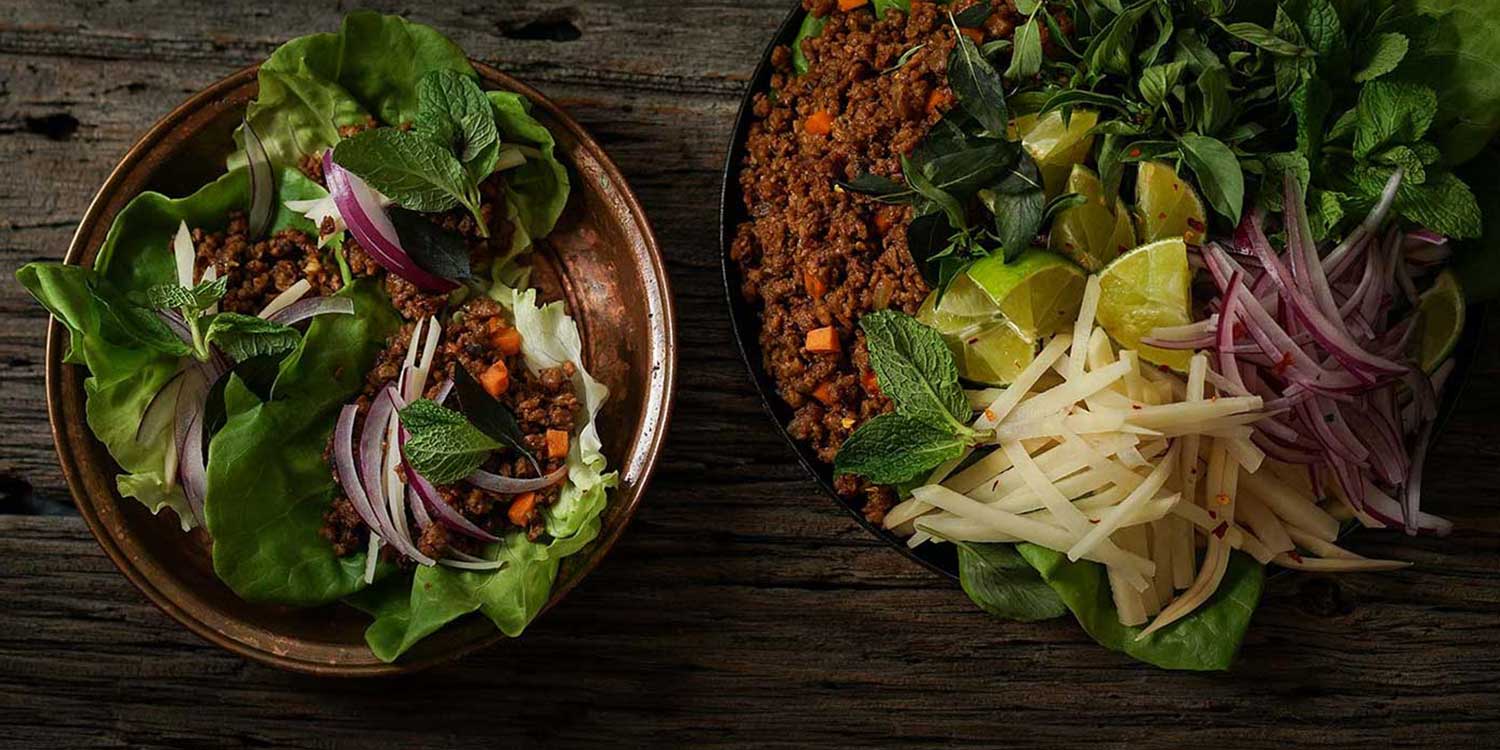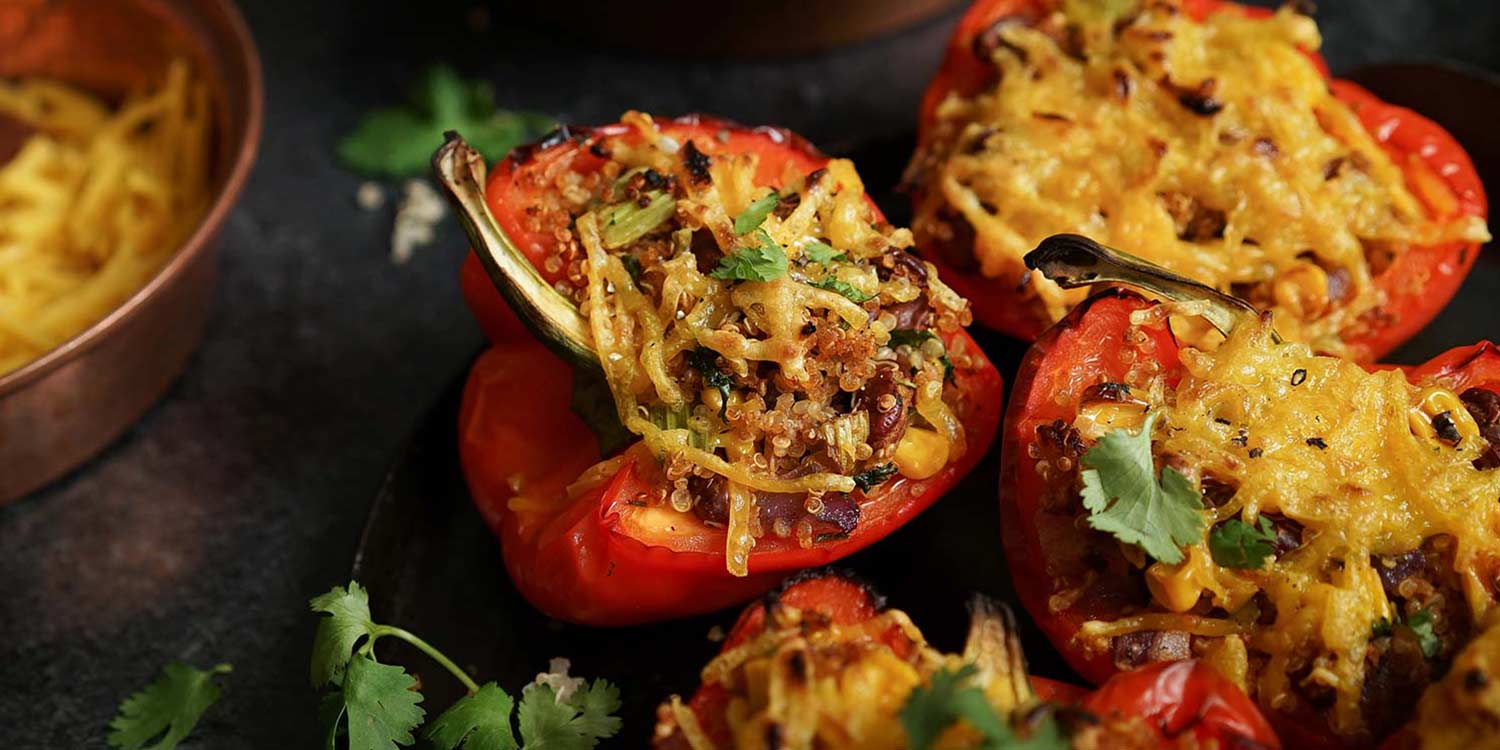

“Animal products in human diets provide an important source of energy”
— National Cattlemen’s Beef Association (1)
While the notion that meat, dairy and eggs are necessary for protein is by far the most pervasive and dangerous myth associated with animal-based foods, another common myth is that without these foods you won’t have enough “energy”.
As Dr. James Loomis — former team physician for the World Series-winning St. Louis Cardinals and Super Bowl-winning St. Louis Rams — explains in The Game Changers:
“You would go to a pre-game dinner with the football team and would see this spread. There would be steak and chicken, very much protein oriented, because their perception was that the protein is what sustains their energy, but in fact, that's not the case.”
As further explained in the film, the “scientific” beginning of this misconception can be traced back to Baron Justus von Liebig, a famous German chemist who falsely claimed that muscular energy comes from animal protein (2). This myth became so widely believed that it even helped shape the USDA's first recommendations for daily protein intake (3).
As discussed in The Plant-Based Advantage, we now know that hard-working muscles run primarily on glycogen, made from the carbohydrates found in plants, which also give our brain the glucose it needs to stay alert and on point during long and intense workouts and competitions.
While the benefits of a plant-based diet start with delayed fatigue and increased stamina, they also include decreased risk of joint pain and disease, increased aerobic fitness, improved immune function, and higher quality overall nutrition.

More than 40% of runners report “hitting the wall” during a marathon. This feeling of complete exhaustion happens when our liver and muscles run out of carbohydrates and is devastating to physical performance (4). Carbohydrate depletion also affect our brains, impairing concentration, coordination, and the ability to pace ourselves properly, while simultaneously making the same workload feel more difficult (5). These obstacles can make the difference between a successful workout or competition and major disappointment.
Since performance-based eating patterns based on meat and other animal products typically provide dietary fat at the expense of carbohydrates (6-10), plant-based diets, which naturally contain ample carbohydrates, are much better suited to energy-intense performance sports and other activities (11).
As we also discussed in The Plant-Based Advantage, nitrate-packed vegetables make muscles more efficient and help preserve our limited fuel supply, which can significantly affect stamina. In one study, for example, simply adding beet juice allowed test subjects to cycle 22% longer than those in the control group (12).

Even without deliberately emphasizing nitrate-rich vegetables, eating plants has been shown to combat fatigue. In another study, recreational runners were able to shave 6% off their 5K run times just four days after switching to a plant-based diet. In this case, the researchers hypothesized that the anti-inflammatory nature of the antioxidant-rich plant foods also contributed to the faster run times (13).
The Plant-Based Advantage also explains how unchecked inflammation can not only prolong recovery times between workouts and competitions, but can also increase joint pain and risk of disease.
People who train or compete frequently, especially in endurance activities that rely upon thousands of repetitive motions (or, in the case of Scott Jurek’s 2200-mile run featured in The Game Changers, millions), are at higher risk of repetitive stress injuries and degenerative joint diseases (14-16).

Fortunately, diet can play a major role in how our bodies respond to this repetitive stress, either increasing inflammation or decreasing it.
As also discussed in The Plant-Based Advantage, the difference between the inflammatory effects of animal vs. plant foods is striking. In one study, for example, just one month on a low-carbohydrate animal-based diet increased inflammatory markers by 46%, while those on a high-carbohydrate plant-based diet decreased these same markers by 28% (17). Plant-based diets are not only associated with lower inflammatory markers (18), they're also linked to lower odds of joint pain. The difference between the two diets is so dramatic that eating meat as little as once per week has been linked to 43-49% higher rates of soft tissue disorders like tendinitis and degenerative arthritis than those who avoid meat (19).
Taking all of this into account, it’s little wonder why so many professional athletes are turning to plant-based diets, not only to increase their performance, but also to prolong their careers.
As we discuss in Getting and Staying Lean, plant-based diets have been shown to decrease body fat and the majority of those who follow them have a lower overall body fat percentage. The effects of lower body fat not only affect one’s appearance and general health, but also have a significant impact on endurance.
Much like running with a backpack weighs us down, carrying extra body fat for miles at a time can be taxing on the body. Endurance athletes of equal VO2 max (the maximum amount of oxygen you can utilize during exercise) but different body weights will not perform the same; the lighter athlete will demonstrate greater stamina and outperform the heavier one (20,21).
The same holds true for people who aren’t trained athletes, since weight loss has been shown to improve relative V02 max by 15% (22). And even without weight loss, a meat-free diet has been shown to decrease body fat and increase aerobic fitness (23).
While moderate exercise improves immunity, more rigorous training can actually lower immune function, putting high-performance athletes at increased risk of upper respiratory infections, including colds, flus and even pneumonia (24). And the stress doesn’t need to be physical; mental stress — experienced by competitive athletes and everyday people alike — can also lead to lowered immune function (25).
Once again, plant foods offer significant advantages, improving immune function through a variety of ways (26-28). Interestingly, one of these ways is by simply consuming more carbohydrates, which helps protect our immune system from hard exercise (29).

Another helpful plant-sourced ingredient is carotenoids, a class of antioxidants found abundantly in yellow, orange and red fruits and vegetables, which also enhance immunity (30). Beta-glucan, a type of fiber found in oats and numerous other grains, has also been shown to improve immune function, significantly reducing cold symptoms after a marathon for up to a month (31), while helping people under stress feel healthier and more energized (32). These, and other elements of plant-based diets, help explain why plant-based runners also experience allergies less frequently than people who eat meat and other animal products (33).
Whether you’re a high-performance athlete, worker, student, or parent, improved immunity means less time spent sick and more time training, competing, working, studying, or simply enjoying everyday life.
As we discussed in What About Protein?, endurance athletes require more protein than non-athletes, roughly 1.2-1.4 grams per kilogram of bodyweight per day (34). While many people might consider this a challenge to achieve on a plant-based diet, research has shown that endurance athletes who don’t consume meat get the same amount of protein per pound as those who do (10,35). Likewise, a cross-sectional study comparing vitamin B12 and vitamin D levels in recreational runners on plant- vs animal-based diets showed no significant differences (36).
High quality nutrition is about more than just protein and vitamins, since countless other nutrients contribute to how we feel and perform, including the pigments in vegetables, the polyphenols in fruits, and the phytochemicals in nuts, all of which improve exercise performance and accelerate recovery after training (13).
The abundance of health-promoting nutrients found in plants explain why, compared to their meat-eating counterparts, plant-based runners earn higher overall diet quality scores (37).
While the common misconception is that animal foods are required for optimized energy and stamina at both the physical and mental levels, the evidence shows that an animal-based diet tends to undermine these goals. Meanwhile a plant-based diet can offer numerous distinct benefits, not only helping to improve our energy and stamina, but also helping to protect our joints, increase our aerobic fitness, aid our immune systems, and improve our overall nutrition.
Given that even a 0.5-1.5% improvement in performance can make a critical difference in competitive sports (38), the compound effect of these plant-based benefits can be very significant, whether you’re an endurance athlete or someone simply looking to stay active and energized.
References
(1) Andreini, EM. How does upcycling relate to beef production? Beef Research. 2019.
(2) Whorton JC. Muscular vegetarianism: the debate over diet and athletic performance in the progressive era. J Sport Hist. 1981;8(2):58-75.
(3) Carpenter KJ. The history of enthusiasm for protein. J Nutr. 1986 Jul;116(7):1364-70.
(4) Rapoport, BI. Metabolic factors limiting performance in marathon runners. PLoS Comput Biol. 2010 Oct;6(10):e1000960.
(5) Thomas DT, Erdman KA, Burke LM. Position of the Academy of Nutrition and Dietetics, Dietitians of Canada, and the American College of Sports Medicine: Nutrition and athletic performance. J Acad Nutr Diet. 2016 Mar;116(3):501-28.
(6) Kanter M. High-quality carbohydrates and physical performance: Expert panel report. Nutr Today. 2018 Jan;53(1):35-9.
(7) Masson G, Lamarche B. Many non-elite multisport endurance athletes do not meet sports nutrition recommendations for carbohydrates. Appl Physiol Nutr Metab. 2016 Jul;41(7):728-34.
(8) Clark M, Reed DB, Crouse SF, Armstrong RB. Pre- and post-season dietary intake, body composition, and performance indices of NCAA division I female soccer players. Int J Sport Nutr Exerc Metab. 2003 Sep;13(3):303-19.
(9) Jenner SL, Buckley GL, Belski R, Devlin BL, Forsyth AK. Dietary Intakes of Professional and Semi-Professional Team Sport Athletes Do Not Meet Sport Nutrition Recommendations — A Systematic Literature Review. Nutrients. 2019 May;11(5):1160.
(10) Nebl J, Schuchardt JP, Wasserfurth P, Haufe S, Eigendorf J, et al. Characterization, dietary habits and nutritional intake of omnivorous, lacto-ovo vegetarian and vegan runners - A pilot study. BMC Nutr. 2019 Dec;5:51.
(11) Barnard ND, Goldman DM, Loomis JF, Kahleova H, Levin SM, Neabore S, Batts TC. Plant-based diets for cardiovascular safety and performance in endurance sports. Nutrients. 2019 Jan;11(1): pii: E130.
(12) Breese, BC, McNary MA, Marwood S, Blackwell JR, Bailey SJ, Jones AM. Beetroot juice supplementation speeds O2 uptake kinetics and improves exercise tolerance during severe-intensity exercise initiated from an elevated metabolic rate. Am J Physiol Regul Integr Comp Physiol. 2013 Dec;305(12):R1441-50.
(13) Baker ME, DeCesare KN, Johnson A, Kress KS, Inman CL, Weiss EP. Short-term Mediterranean Diet improves endurance exercise performance: A randomized-sequence crossover trial. J Am Coll Nutr. 2019 Feb;13:1-9.
(14) Aicale R, Tarantino D, Maffulli N. Overuse injuries in sport: a comprehensive overview. J Orthop Surg Res. 2018 Dec;13(1):309.
(15) Driban JB, Hootman JM, Sitler MR, Harris KP, Cattano NM. Is participation in certain sports associated with knee osteoarthritis? A systematic review. J Athl Train. 2017 Jun;52(6):497-506.
(16) Alentorn-Geli E, Samuelsson K, Musahl V, Green CL, Bhandari M, Karlsson J. The association of recreational and competitive running with hip and knee osteoarthritis: A systematic review and meta-analysis. J Orthop Sports Phys Ther. 2017 Jun;47(6):373-90.
(17) Miller M, Beach V, Sorkin JD, Mangano C, Dobmeier C, Novacic D, Rhyne J, Vogel RA. Comparative effects of three popular diets on lipids, endothelial function, and C-reactive protein during weight maintenance. J Am Diet Assoc. 2009 Apr;109(4):713-7.
(18) Craddock JC, Neale EP, Peoples GE, Probst YC. Vegetarian-Based Dietary Patterns and their Relation with Inflammatory and Immune Biomarkers: A Systematic Review and Meta-Analysis. Adv Nutr. 2019 May;10(3):433-51.
(19) Hailu A, Knutsen SF, Fraser GE. Associations between meat consumption and the prevalence of degenerative arthritis and soft tissue disorders in the adventist health study, California U.S.A. J Nutr Health Aging. 2006 Jan-Feb;10(1):7-14.
(20) Gregory J, Johns DP, Walls JT. Relative vs. absolute physiological measures as predictors of mountain bike cross-country race performance. J Strength Cond Res. 2007 Feb;21(1):17-22.
(21) Impellizzeri FM, Marcora SM, Rampinini E, Mognoni P, Sassi A. Correlations between physiological variables and performance in high level cross country off road cyclists. Br J Sports Med. 2005 Oct;39(10):747-51.
(22) Goran M, Fields DA, Hunter GR, Herd SL, Weinsier RL. Total body fat does not influence maximal aerobic capacity. Int J Obes Relat Metab Disord. 2000 Jul;24(7):841-8.
(23) Veleba J, Matoulek M, Hill M, Pelikanova T, Kahleova H. "A vegetarian vs. conventional hypocaloric diet: The effect on physical fitness in response to aerobic exercise in patients with type 2 diabetes." A parallel randomized study. Nutrients. 2016 Nov;8(11):671.
(24) Simpson RJ, Kunz H, Agha N, Graff R. Exercise and the regulation of immune functions. Prog Mol Biol Transl Sci. 2015 Sep;135:355-80.
(25) Pedersen A, Zachariae R, Bovbjerg DH. Influence of psychological stress on upper respiratory infection--a meta-analysis of prospective studies. Psychosom Med. 2010 Oct;72(8):823-32.
(26) Lampe JW. Health effects of vegetables and fruit: assessing mechanisms of action in human experimental studies. Am J Clin Nutr. 1999 Sep;70(3 Suppl):475S-90S.
(27) Li L, Werler MM. Fruit and vegetable intake and risk of upper respiratory tract infection in pregnant women. Public Health Nutr. 2010 Feb;13(2):276-82.
(28) Gibson A, Edgar JD, Neville CE, Gilchrist SE, McKinley MC, Patterson CC, Young IS, Woodside JV. Effect of fruit and vegetable consumption on immune function in older people: a randomized controlled trial. Am J Clin Nutr. 2012 Dec;96(6):1429-36.
(29) Peake JM, Neubauer O, Walsh NP, Simpson RJ. Recovery of the immune system after exercise. J Appl Physiol (1985). 2017 May;122(5):1077-87.
(30) Milani A, Basirnejad M, Shahbazi S, Bolhassani A. Carotenoids: biochemistry, pharmacology and treatment. Br J Pharmacol. 2017 Jun;174(11):1290-324.
(31) Talbott S, Talbott J. Effect of BETA 1, 3/1, 6 GLUCAN on upper respiratory tract infection symptoms and mood state in marathon athletes. J Sports Sci Med. 2009 Dec;8(4):509-15.
(32) Talbott SM, Talbott JA. Baker's yeast beta-glucan supplement reduces upper respiratory symptoms and improves mood state in stressed women. J Am Coll Nutr. 2012 Aug;31(4):295-300.
(33) Wirnitzer K, Boldt P, Lechleitner C, Wirnitzer G, Leitzmann C, Rosemann T, Knechtle B. Health status of female and male vegetarian and vegan endurance runners compared to omnivores-Results from the NURMI Study (Step 2). Nutrients. 2018 Dec;11(1). pii: E29.
(34) Bagchi D, Nair S, Sen CK. Nutrition and Enhanced Sports Performance: Muscle Building, Endurance, and Strength. London: Academic Press; 2018.
(35) Lynch HM, Wharton CM, Johnston CS. Cardiorespiratory fitness and peak torque differences between vegetarian and omnivore endurance athletes: A cross-sectional study. Nutrients. 2016 Nov;8(11). pii: E726.
(36) Nebl J, Schuchardt JP, Ströhle A, Wasserfurth P, Haufe S, Eigendorf J, Tegtbur U, Hahn A. Micronutrient status of recreational runners with vegetarian or non-vegetarian dietary patterns. Nutrients. 2019 May;11(5):1146.
(37) Turner-McGrievy GM, Moore WJ, Barr-Anderson D. The interconnectedness of diet choice and distance running: Results of the Research Understanding the Nutrition of Endurance Runners (RUNNER) Study. Int J Sport Nutr Exerc Metab. 2016 Jun;26(3):205-11.
(38) Domínguez R, Cuenca E, Maté-Muñoz JL, García-Fernández P, Serra-Paya N, Estevan MC, Herreros PV, Garnacho-Castaño MV. Effects of beetroot juice supplementation on cardiorespiratory endurance in athletes. A Systematic Review. Nutrients. 2017 Jan;9(1):43.
Will I get enough energy? What about carbs? Our experts and athletes weigh in on the most commonly asked questions about plant-based eating and going the distance.
View All